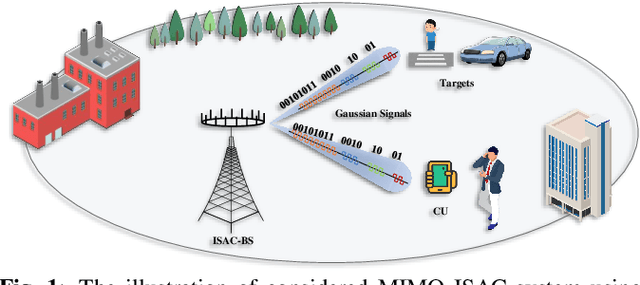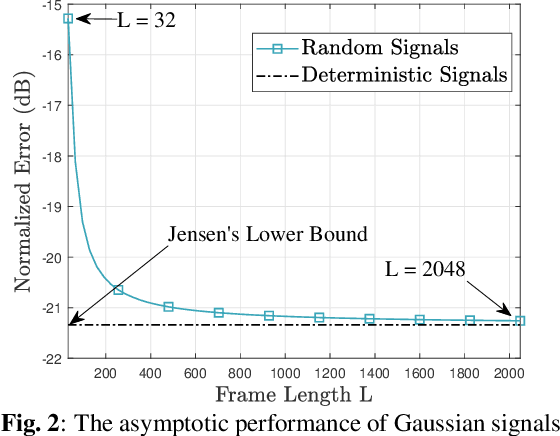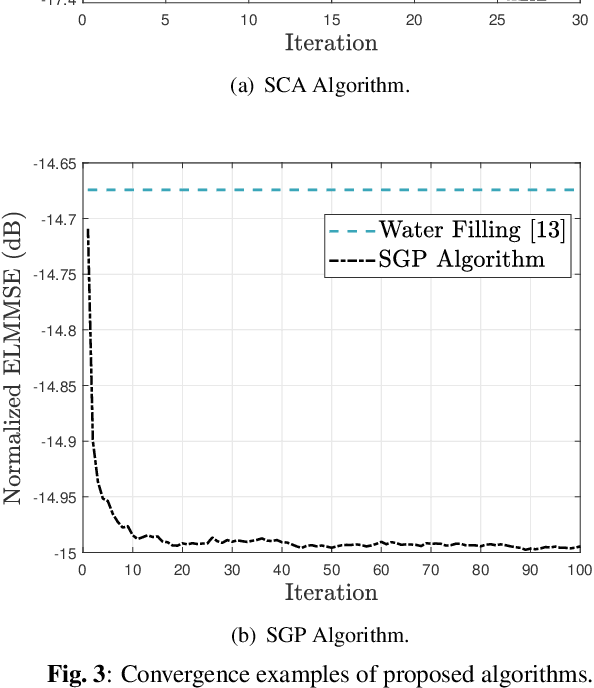Sensing With Random Signals
Paper and Code
Sep 06, 2023



Radar systems typically employ well-designed deterministic signals for target sensing. In contrast to that, integrated sensing and communications (ISAC) systems have to use random signals to convey useful information, potentially causing sensing performance degradation. This paper analyzes the sensing performance via random ISAC signals over a multi-antenna system. Towards this end, we define a new sensing performance metric, namely, ergodic linear minimum mean square error (ELMMSE), which characterizes the estimation error averaged over the randomness of ISAC signals. Then, we investigate a data-dependent precoding scheme to minimize the ELMMSE, which attains the {optimized} sensing performance at the price of high computational complexity. To reduce the complexity, we present an alternative data-independent precoding scheme and propose a stochastic gradient projection (SGP) algorithm for ELMMSE minimization, which can be trained offline by locally generated signal samples. Finally, we demonstrate the superiority of the proposed methods by simulations.
 Add to Chrome
Add to Chrome Add to Firefox
Add to Firefox Add to Edge
Add to Edge